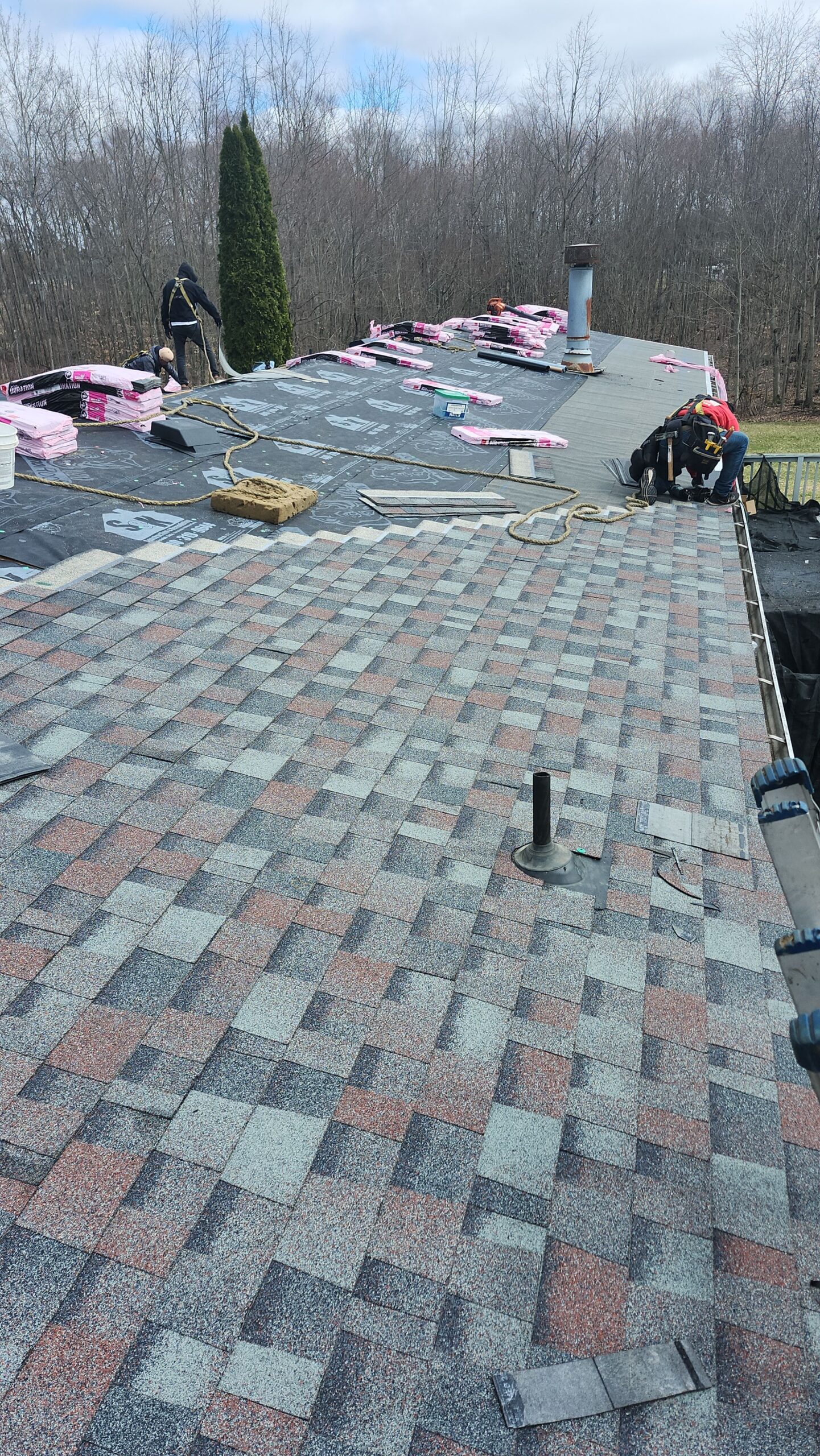Types of Commercial Roofing Decks
Selecting the Right Roof Deck (Continued)
- Fire Resistance:
Different roofing deck materials offer varying degrees of fire protection. For instance, concrete and gypsum decks offer superior fire resistance compared to wood. When local building codes mandate specific fire ratings, deck selection must comply with these regulations. - Thermal Performance:
If your goal is energy efficiency, then decking systems like LWIC or composite decks with built-in insulation can help reduce heating and cooling costs. Enhanced thermal properties contribute to better building envelope performance and can reduce HVAC load. - Moisture Resistance:
In areas prone to high humidity or frequent rain, moisture resistance becomes critical. Metal decks, especially galvanized, and concrete decks tend to perform better under these conditions compared to wood or gypsum. Tectum and gypsum must be properly sealed and maintained to prevent long-term damage. - Acoustic Requirements:
If your commercial space is a school, auditorium, or office complex, acoustic performance may be important. Tectum and certain composite decks provide excellent sound absorption and reduce interior noise levels. - Installation Time and Cost:
Poured-in-place concrete or LWIC decks often require more time and labor to install. On the other hand, metal and precast concrete decks offer faster installation, potentially lowering overall construction costs. Choose a decking type that aligns with your budget and construction timeline. - Roofing System Compatibility:
Ensure the deck type is compatible with the desired roofing membrane—whether that’s TPO, EPDM, modified bitumen, or a built-up roof. Some roofing systems require a very smooth substrate (like concrete), while others allow more flexibility.
Roofing Deck Codes and Compliance
It’s essential to adhere to all applicable codes and standards when selecting and installing a roofing deck. This includes:
- International Building Code (IBC)
- FM Global Approval
- UL Fire Ratings
- ANSI/SPRI Standards
Consult with a structural engineer or roofing specialist to ensure your chosen deck meets these guidelines. Failure to comply can delay inspections, void warranties, or lead to costly repairs and penalties.
Common Roofing Deck Problems and How to Avoid Them
While roofing decks are generally built to last, certain issues can undermine their performance:
- Corrosion (in Metal Decks): Moisture and chemical exposure can lead to rust. Use galvanized or coated metal and maintain proper drainage.
- Delamination (in Composite and Gypsum Decks): Improper curing or water infiltration can cause layers to separate, weakening the deck. Always follow manufacturer guidelines during installation.
- Warping and Rot (in Wood Decks): Caused by poor ventilation or water exposure. Use treated lumber and ensure proper sealing and ventilation.
- Cracking (in Concrete Decks): This can be due to improper curing or excessive load. Follow proper mix ratios and curing techniques and use reinforcement where required.
Maintenance of Commercial Roof Decks
Proper maintenance extends the life of any roofing deck system. Key practices include:
- Regular Inspections: Check for signs of wear, corrosion, cracks, and moisture penetration.
- Roof Drainage Maintenance: Ensure gutters and downspouts are clear and functional to prevent water accumulation.
- Prompt Repairs: Address any damage or issues promptly to prevent them from spreading or worsening.
- Sealants and Coatings: Periodic reapplication can enhance moisture resistance and fire performance.
Sustainability in Roof Decking
Sustainability is becoming an important consideration in commercial construction. Roofing decks can play a significant role by contributing to:
- LEED Certification: Using recycled steel in metal decks or environmentally friendly components in LWIC and Tectum boards can earn LEED points.
- Reflective Roof Systems: Some decking systems pair well with cool roofing materials that reflect sunlight, reducing urban heat islands and energy use.
- Longer Lifecycle: Durable materials like concrete and composite decking reduce the need for frequent replacements, conserving resources over time.
Partner with a Trusted Roofing Expert
Choosing the right roofing deck isn’t a one-size-fits-all decision. That’s where S&K Construction and Remodeling LLC comes in. As an Owens Corning Preferred Contractor with years of experience in commercial roofing across Northeast Ohio—including Youngstown, Beachwood, Mayfield Heights, Concord, Lyndhurst, Euclid, Cleveland, and beyond—our team brings expertise and precision to every project.
We help businesses:
- Select the right roof deck based on building use, climate, and budget
- Ensure compliance with local building codes and safety regulations
- Coordinate with manufacturers and engineers to design efficient, long-lasting roof systems
- Provide financing options for large-scale commercial installations and replacements
And don’t just take our word for it—check out our Google Reviews from satisfied business owners and property managers throughout the region.
Conclusion
Understanding the different types of commercial roofing decks is essential to making informed decisions about your building’s roofing system. From metal and concrete to wood, Tectum, and LWIC, each material offers its own benefits, costs, and applications. Whether you’re designing a new commercial space or upgrading an old roof, the deck is your foundation—literally and figuratively.
Partner with professionals like S&K Construction and Remodeling LLC to make the best choices for your structure, your budget, and your long-term goals. Contact us today for a consultation and let us help you build smarter, safer, and more sustainable from the top down.
Ready to start your commercial roofing project?
📞 Call S&K Construction and Remodeling LLC today or visit our website to schedule your free consultation and roof deck assessment.
 (440) 307-2060
(440) 307-2060


